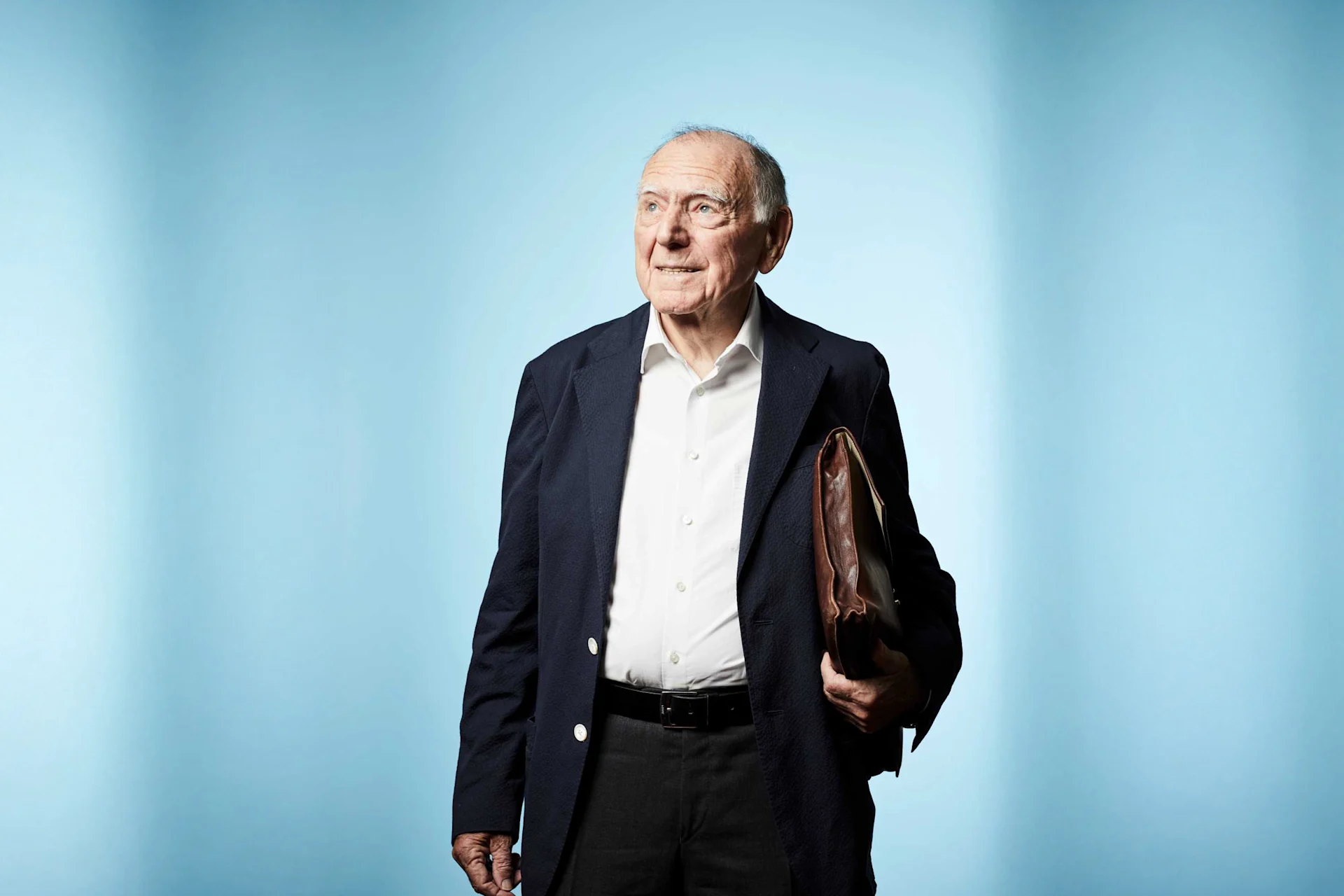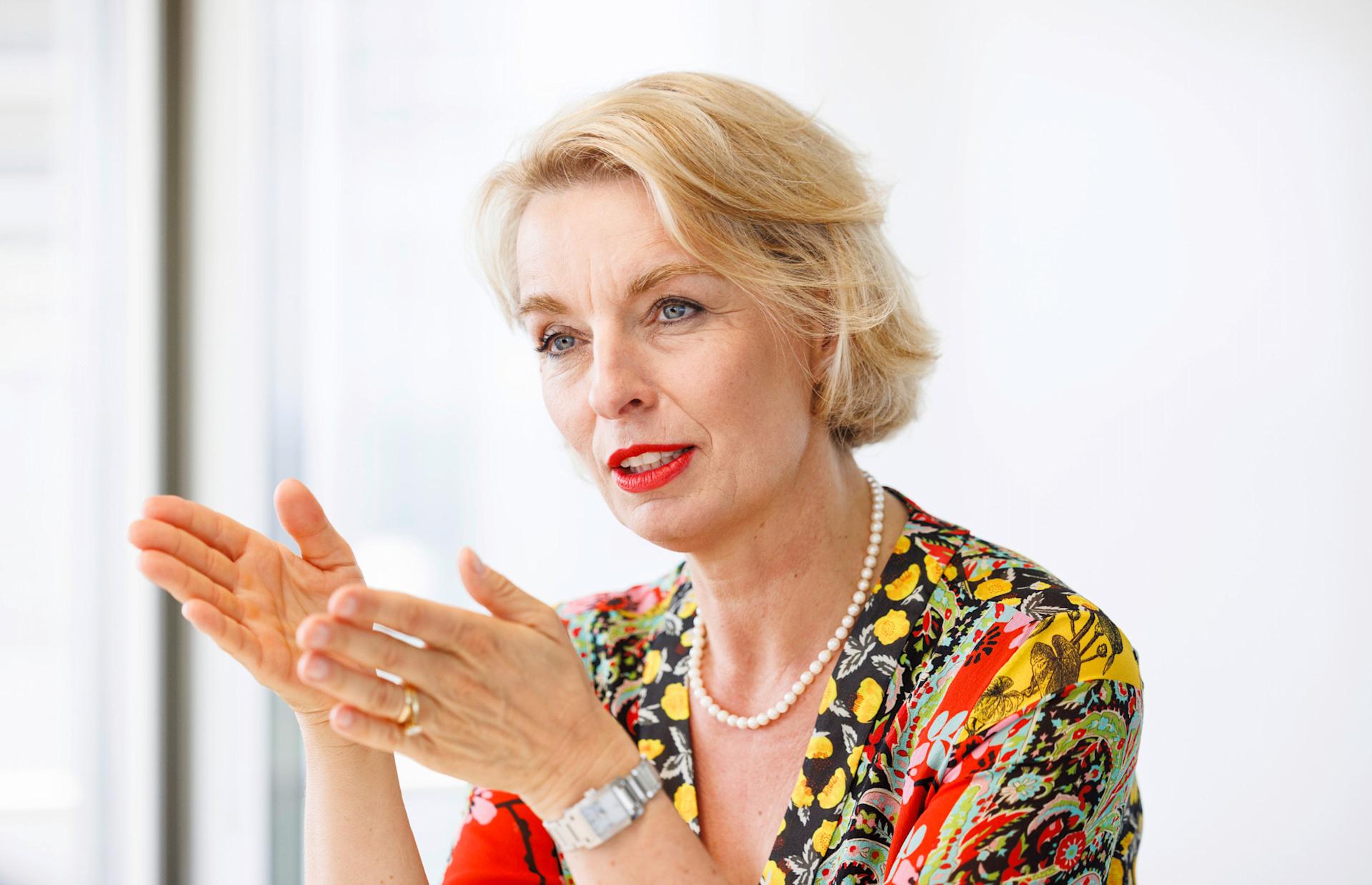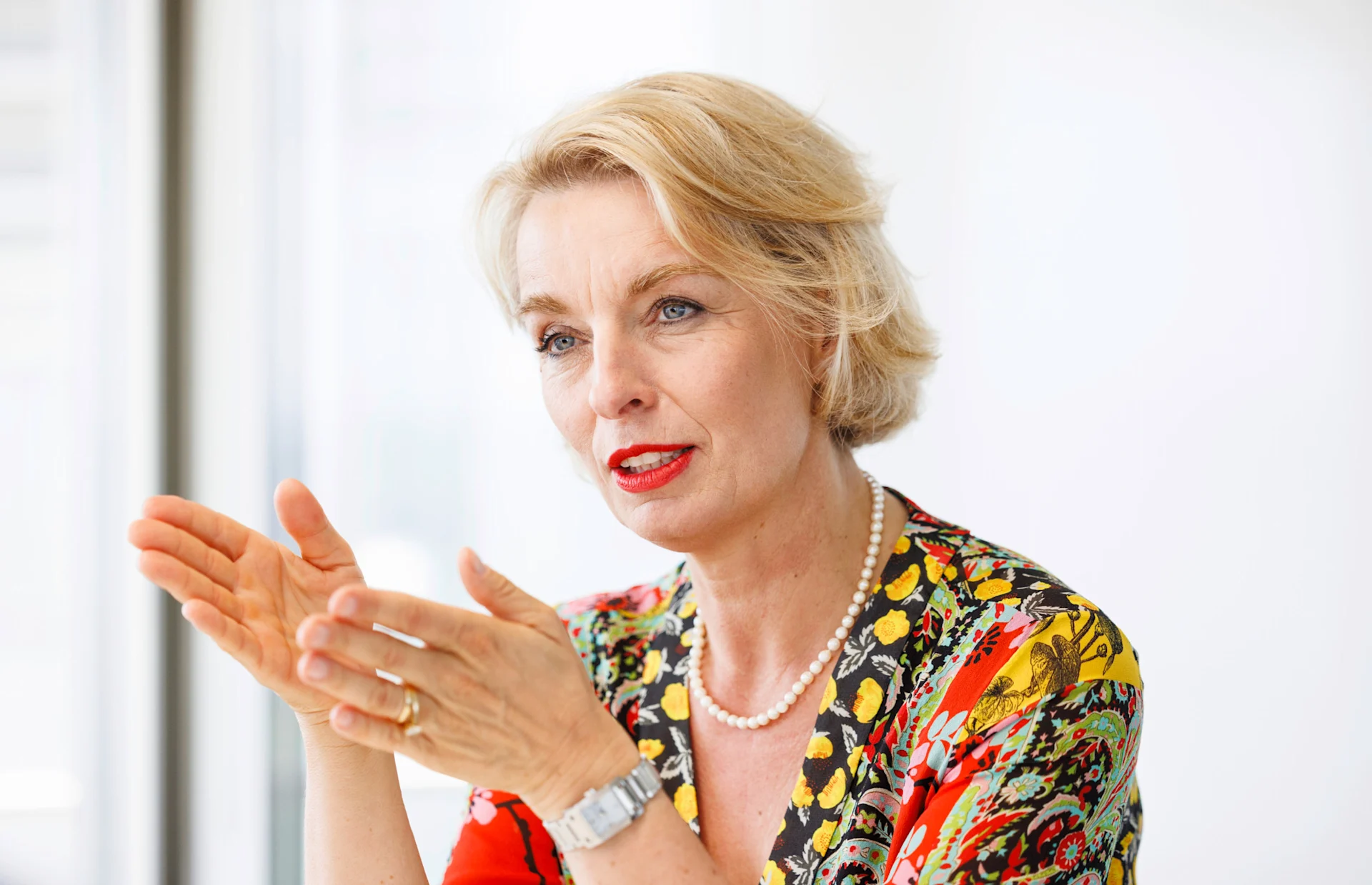
Obituary
Farewell, dear Jules Kyburz
Obituary of Jules Kyburz, former President of the FMC Executive Board, who has died at the age of 93.
navigation

Interview with Ursula Nold
Ursula Nold feels relieved about the unequivocal decision. In the interview the Migros President explains future plans in relation to M-Democracy.
I was relieved at how clear and homogeneous the results were. The members of all 10 cooperatives sent out a clear signal: many of them are satisfied with how Migros is doing things at the moment. I also had a sense of gratitude for the active debate in the run-up to the ballot as well as the high turnout. And last but not least, I was really satisfied about how carefully Migros prepared for and held this ballot.
All of the surveys previously carried out had pointed to a clear preference in favour of «no». Against this backdrop, any other result would have come as a surprise. However, turnout for the ballot was higher than average. For me this is testament to the public’s strong bond with Migros. We had the opportunity not only to talk about the intentional ban on selling alcohol in branch stores, but also about the values of Migros overall and what makes it so unique. It is fantastic that this company and its values were able to trigger a social discussion in our country.
The initiative originated from the Assembly of Delegates. The aim was to discuss the issue thoroughly once again, as 70 years had passed since the last ballot. The most important thing for all bodies and also for me personally was that the members had input into this decision. We didn’t actually run a campaign in favour of «yes», and the message was always: «It’s your decision.» For sure, nobody is going to be penalised for having come out in favour of a «yes» vote. The members reached a clear decision, and everyone is respecting that.
I don’t like the word «patchwork» in this context. I’m naturally happy that we achieved an unequivocal result. However, even if the members had decided differently in different regions, the result would have had to have been implemented without any ifs or buts. This is the price of federalism, which is part of Migros’ DNA.
Ballots have always been held. For example, last year this was the mechanism used in order to reduce the term in office of cooperative governing officers. We have regularly held consultative ballots in the past. At the moment, we are considering whether to use this instrument more frequently in future in order to take the pulse of our members directly.
Absolutely. Alongside the question concerning the alcohol ban, members were also able to state their views on the issue of electronic voting. I am delighted that this proposal was accepted so clearly, as here too a two-thirds majority was required. This shows that changes and developments are possible and that Migros is in favour of progress. By enabling electronic voting we aim to instil Migros’ ideas into the younger generation and encourage them to get involved.
Innovation itself is also a tradition at Migros and is both expected and cherished by customers. We constantly surprise our customers with new, unique products and services, whether it’s the first vegan eggs or the ability to shop with a smartphone. We aim to be bold and to experiment, holding on to tried and tested solutions and developing others – no differently from how Gottlieb Duttweiler did things. We aim to continue pursuing his pioneering spirit, also today. There are also core values such as offering the best value for money, strong own brands and the Culture Percentage, which will always be dear to Migros.
As I said, we hope that this will also enable us to reach a younger generation. It will still be possible to vote by post and in person at branch stores. Electronic voting provides an additional third option, which will hopefully allow us to take the pulse of members more closely, and perhaps also increase voter participation.
Of course! We will most likely allow for this by issuing a Cumulus voucher. The chocolate bar is very much appreciated, and we saw this once again during the ballot.
I’m looking forward to seeing this beer, and will definitely try it out. It will serve as a reminder of this unique ballot, as a symbol of our democracy in action.

Ursula Nold (53) has been President of the Board of Directors of the Federation of Migros Cooperatives (FMC) since 2019. She was previously President of the FMC Assembly of Delegates. Ursula Nold is a member of various boards of directors and foundation boards, and was previously a lecturer at the Bern University of Teacher Education.